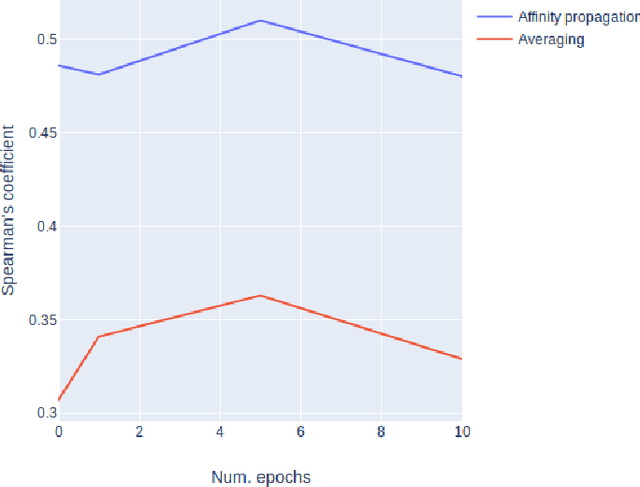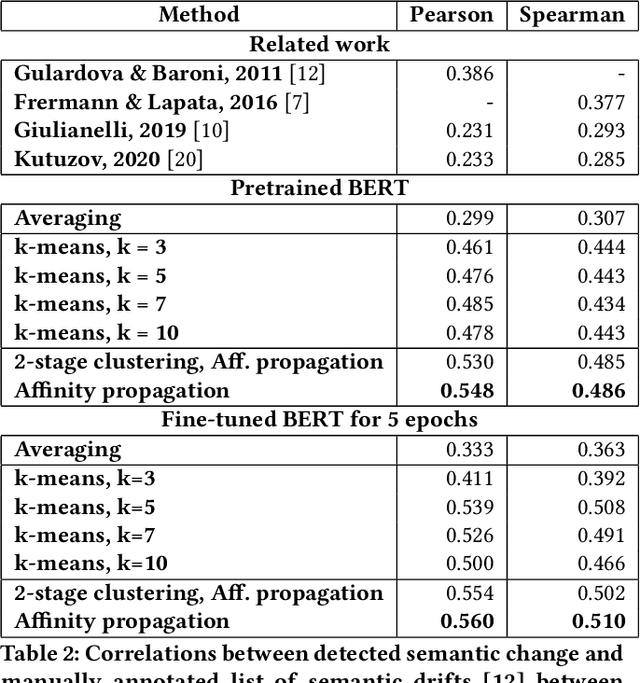Capturing Evolution in Word Usage: Just Add More Clusters?
Paper and Code
Jan 24, 2020



The way the words are used evolves through time, mirroring cultural or technological evolution of society. Semantic change detection is the task of detecting and analysing word evolution in textual data, even in short periods of time. In this paper we focus on a new set of methods relying on contextualised embeddings, a type of semantic modelling that revolutionised the NLP field recently. We leverage the ability of the transformer-based BERT model to generate contextualised embeddings capable of detecting semantic change of words across time. Several approaches are compared in a common setting in order to establish strengths and weaknesses for each of them. We also propose several ideas for improvements, managing to drastically improve the performance of existing approaches.
 Add to Chrome
Add to Chrome Add to Firefox
Add to Firefox Add to Edge
Add to Edge